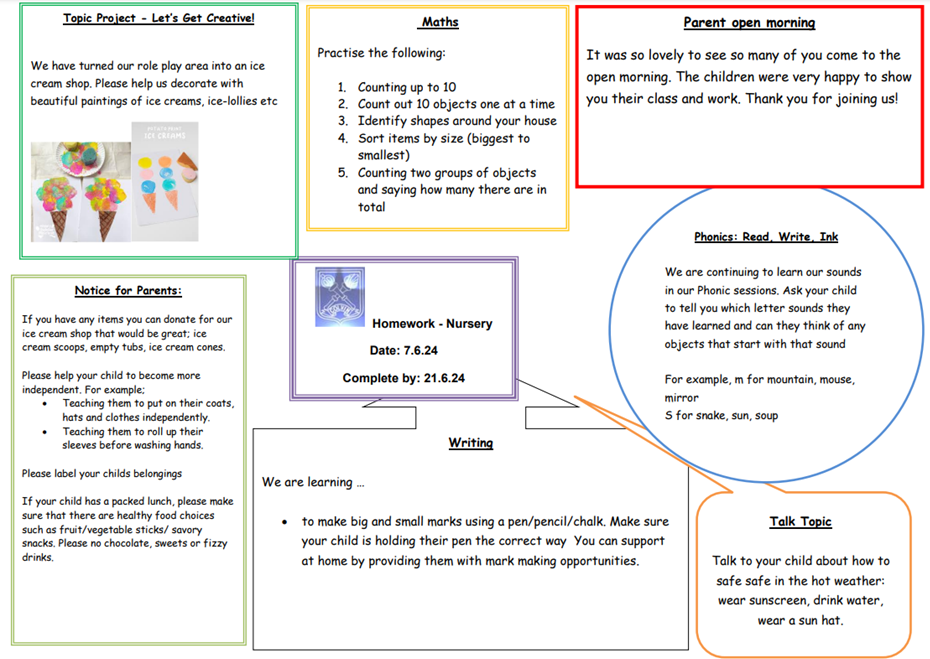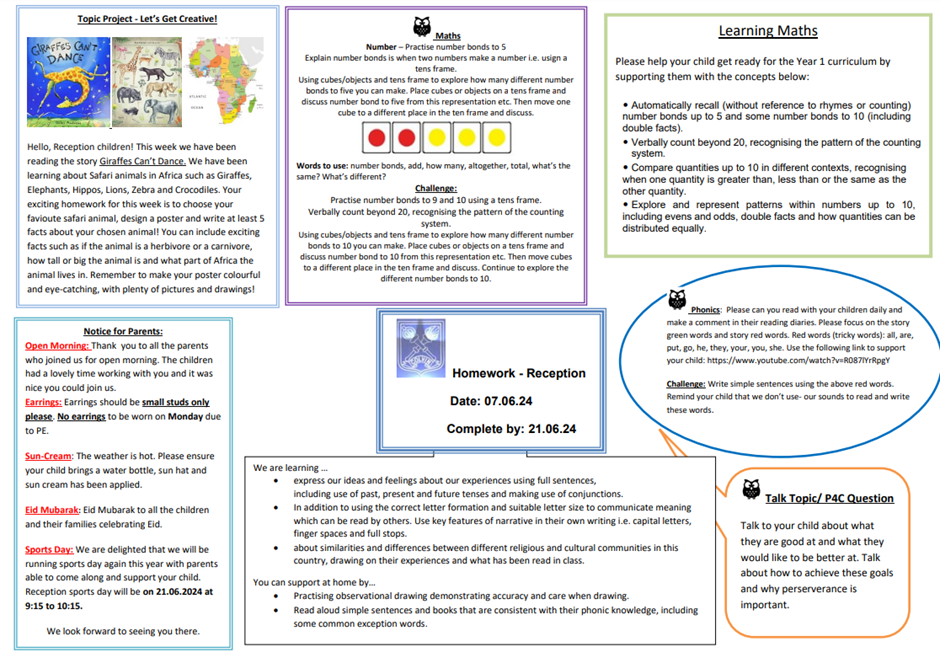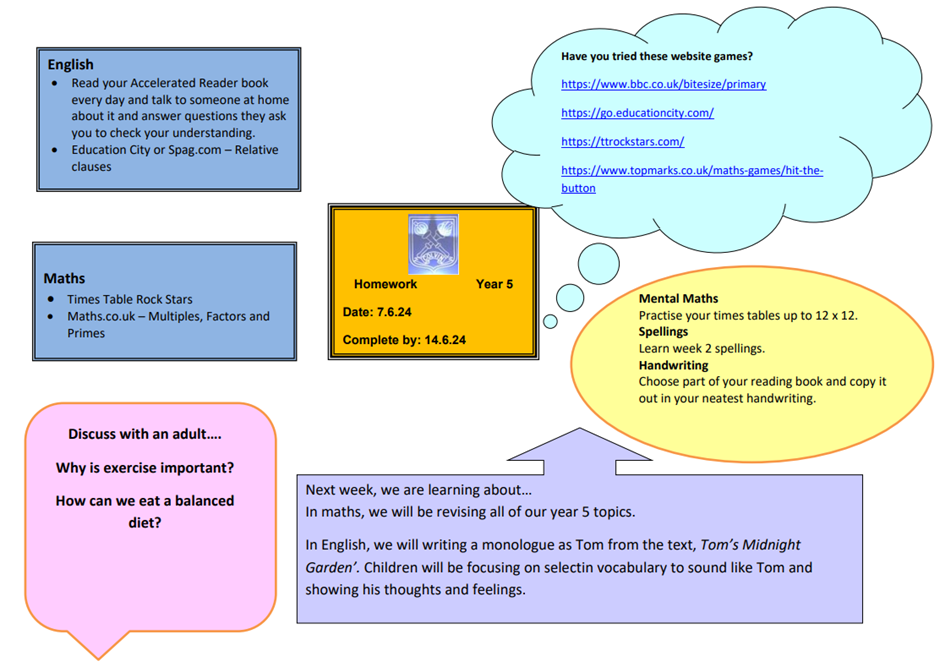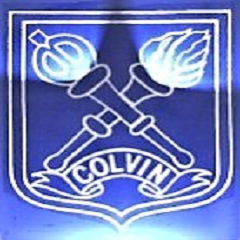
Gilbert Colvin Primary School
Home Learning
Homework is set each week for KS1 and KS2 children and fortnightly for EYFS children. The homework is a mix of online and paper-based learning. Homework is sent home by School Ping.
We expect all children to read at home; younger children should read with an adult or sibling, older readers can read by themselves, although reading with an adult helps readers at any stage.
Read Write Inc. links are sent separately each week by School Ping for Reception, Year 1 and Year 2 children who are on the RWI programme.
Times Table Rock Stars is available to all children in Key Stage 2.
Accelerated Reader is available to all children who are not taking home RWI books.
Our Homework Policy
Aims:
- To ensure consistency of approach throughout the school
- To help pupils to take responsibility for their own learning, through the encouragement of self-discipline
- To promote independent learning
- To identify that learning is not a skill that is restricted to school but is part of our everyday lives
- To support parents and carers to have a focus for engaging in their children’s learning
Marking:
Teachers are not expected to mark homework but it is checked and acknowledged. The teacher maintains a record of who is completing homework and will communicate with parents/carers if pupils do not complete homework.
Rewards:
Pupils who regularly complete all homework fully will be given Trackit points and their efforts celebrated in assemblies.
Responsibilities:
It is our expectation that the school, pupils and parents are all equally responsible for the completion of homework. At Gilbert Colvin we have daily, weekly and termly homework expectations.
Daily homework tasks will consist of short, regular activities such as reading aloud to an adult or practising spellings. Weekly homework will be set by teachers on a Friday and is expected to be completed by the following Tuesday. Termly curriculum projects will be set for pupils to complete during a half-term break.
A homework club will be provided to assist anyone with accessibility issues.
Inclusion:
All pupils have access to homework that is relevant to their current stage of learning, and it will provide the appropriate challenge for individuals. We aim to provide suitable and appropriate learning opportunities for all, regardless of age, gender, ethnicity, needs, disabilities or abilities.
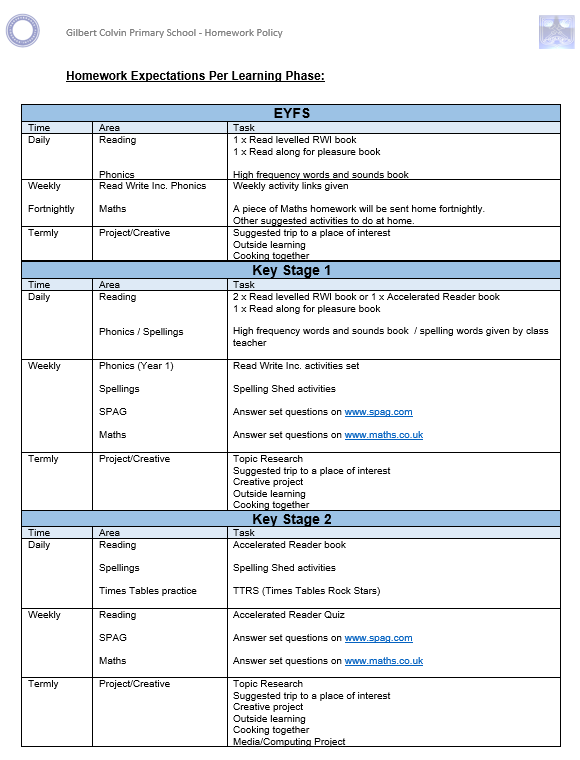
Here are some examples of the homework that your child might receive:
